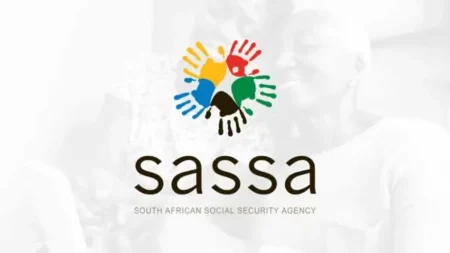Sometimes life throws unexpected challenges our way. Whether it’s job loss, illness, or a crisis, many families in South Africa find themselves struggling to put food on the table. When hunger strikes suddenly, knowing how to request emergency food assistance can be a lifeline.
In this article, we’ll guide you step-by-step on how to get emergency food help, where to turn, what to expect, and how to prepare for future food security. You are not alone, and there are many organisations and government programs ready to support you.
Who Qualifies for Emergency Food Assistance?
Food assistance is usually aimed at those in urgent need, including:
Families facing sudden loss of income.
Elderly people with limited support.
People with disabilities.
Households affected by natural disasters, floods, or fires.
Children or pregnant women in vulnerable situations.
If you are struggling to afford food, you have the right to ask for help. Don’t be ashamed—many South Africans experience hard times.
Step-by-Step Guide: How to Request Emergency Food Assistance
1. Identify Your Local Food Assistance Resources
Start by finding organisations near you that offer food aid. These might include:
Local NGOs and Charities: Many community groups, churches, and charities provide food parcels or meals.
Government Services: Some government departments have food relief programs or can direct you to resources.
Soup Kitchens: Places where you can get free cooked meals.
Social Welfare Offices: They often manage food aid in coordination with other services.
You can visit your local clinic, community centre, or municipal office to ask where to go for food support.
2. Contact the Organisation
Once you find a suitable organisation, get in touch. This might be by:
Visiting the office in person.
Calling their helpline or phone number.
Sending an email or message if possible.
Explain your situation honestly and clearly. Tell them how many people you need food for, and if you have any special dietary needs.
3. Prepare the Necessary Information
Some organisations might ask you for:
Your ID or proof of residence.
Household details (number of people, ages).
Proof of income or unemployment (if available).
Medical documents if you or a family member is sick or disabled.
Don’t worry if you don’t have all these; many will still help based on need.
4. Visit the Food Assistance Site or Receive Delivery
You may need to go to the organisation’s location to collect food parcels or attend meal times at soup kitchens.
In some areas, especially during crises like COVID-19 or floods, food may be delivered directly to your home.
5. Follow Up and Stay Connected
If you need continued support, ask if the organisation offers ongoing assistance or referrals to other services like social grants, job placement, or counselling.
Where to Find Emergency Food Assistance in South Africa
Here are some trusted sources to start with:
Government Resources
Department of Social Development (DSD): Provides support including food parcels through local social workers.
South African Social Security Agency (SASSA): While mainly for social grants, SASSA sometimes coordinates emergency food relief.
Local Municipal Offices: Many municipalities run food relief programs, especially during disasters.
NGOs and Charities
FoodForward SA: One of the largest food banks distributing surplus food to charities and community groups.
Gift of the Givers: Active in disaster relief, including food distribution.
The Lunchbox Fund: Focuses on feeding schoolchildren but sometimes helps families.
Local Churches and Community Groups: Often have food aid programs—ask around in your community.
Tips for Making Your Request Successful
Be Honest: Share your real situation so they understand the urgency.
Be Polite: Staff and volunteers work hard and appreciate respect.
Ask Questions: Find out what help they provide and what they need from you.
Follow Instructions: If you need to bring documents or come at certain times, do so.
Stay Patient: Sometimes demand is high and assistance takes time.
How to Prepare for Future Food Security
While emergency help is vital, it’s also important to plan for longer-term stability:
Apply for Social Grants: Child Support Grant, Older Person’s Grant, Disability Grant.
Look for Job Opportunities: Even small jobs can help.
Start a Food Garden: Growing your own vegetables is affordable and sustainable.
Join Community Kitchens: These can provide both food and skills training.
Learn About Nutrition: Make the most of available food for healthy meals.
No one should have to go hungry, especially in South Africa where there are many resources available. Knowing how to request emergency food assistance can be a critical step in getting back on your feet.
Reach out to local organisations, government offices, or community groups — they are there to help. Remember, asking for help is a sign of strength, not weakness.
If you or someone you know needs food assistance, start today. Help is closer than you think.










